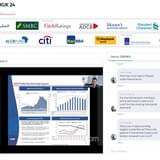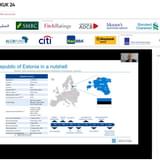Turkish President Erdogan has called for the country’s banks to cut mortgage rates to 9% annually from the current 13.72%, and 14 of the country’s lenders have already followed suit.
Despite concerns amongst the investment community about the impact on profits for many of Turkey’s banks, the headline impact has been much more significant than actual actions that have been taken by individual lenders.
Roxana Hulea, VP of EM strategy at Societe Generale suggested headlines about the impact of mortgage interest rate cuts on Turkish FIs were overblown, and it is unlikely to seriously imperil the profitability of the sector.
“We have been in discussions with local banks and this is much more of a headline story than anything really major for Turkish banks at the moment.”
The impact is likely to be small because a number of Turkish banks have applied the lower rate to a very small and specific segment of their shorter term loan portfolios, which are usually below the 5-year mark. Furthermore, the Turkish Central Bank’s move to lower the lira reserve requirement ratio last week by 50bp will alleviate pressure on the funding side.
As a result, the impact of lower mortgage rates is unlikely to significantly impact the investment outlook on Turkey.
Even mortgage backed covered bonds are unlikely to see foreign appetite wane. “I do not think there will be any impact on such bonds. There is no immediate link.”
The small impact a cut in mortgage rates may have is down to the fact that the banking sector has remained strong, and continues to look solid. “It is very well capitalised and is converting to Basel III requirements,” Hulea said.
Even regarding NPLs, the banking sector is in a very comfortable position to weather any headwinds going forward, such as a credit slowdown.
Many of the ratings agencies have also interpreted the efforts of the financial regulators in Turkey positively, such as consolidating the banking sector and cooperating with international requirements. Despite presidential influence over the Turkey’s banking sector, which has caused concern, it remains resilient.
In addition, although monetary policy in Turkey can be dictated by the President’s office, rather than by the Central Bank, which does draw scrutiny according to Hulea, the policy being dictated is in line with what would be expected from a central bank on an easing path.
“As much as possible is being done to ease liquidity requirements, which need to be conveyed to the private sector as well to offset the effects of a slowdown in growth.”









